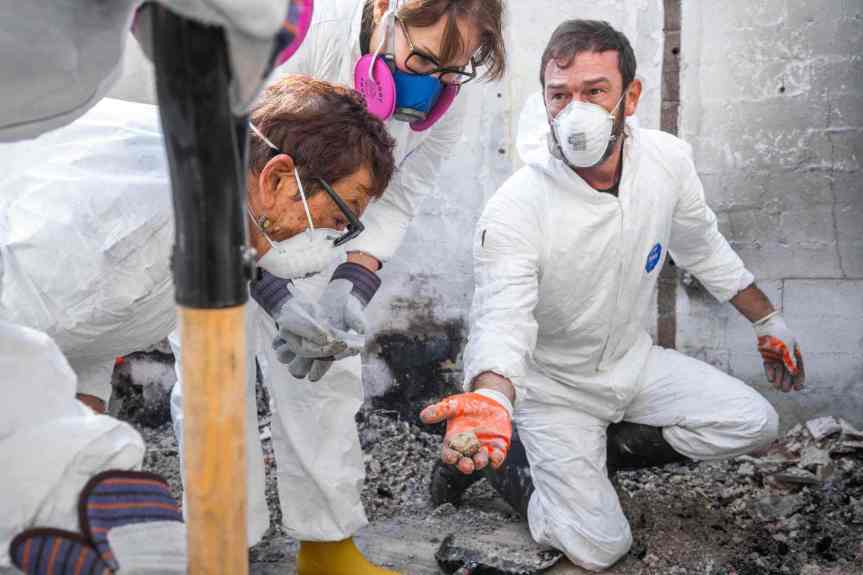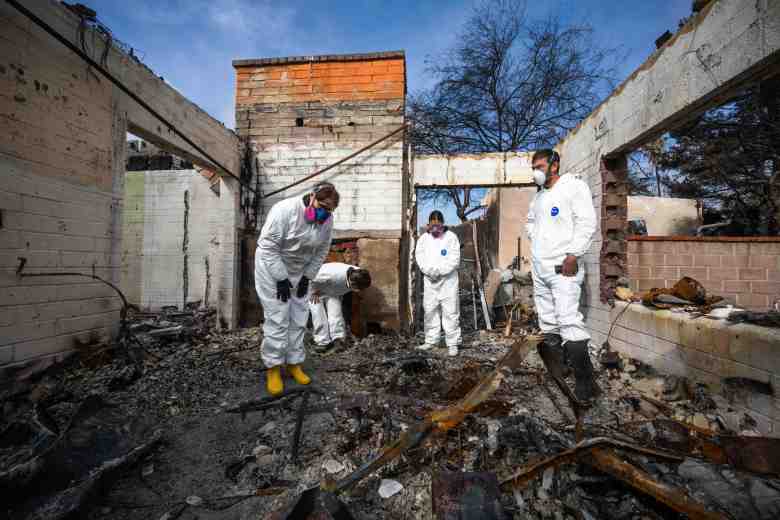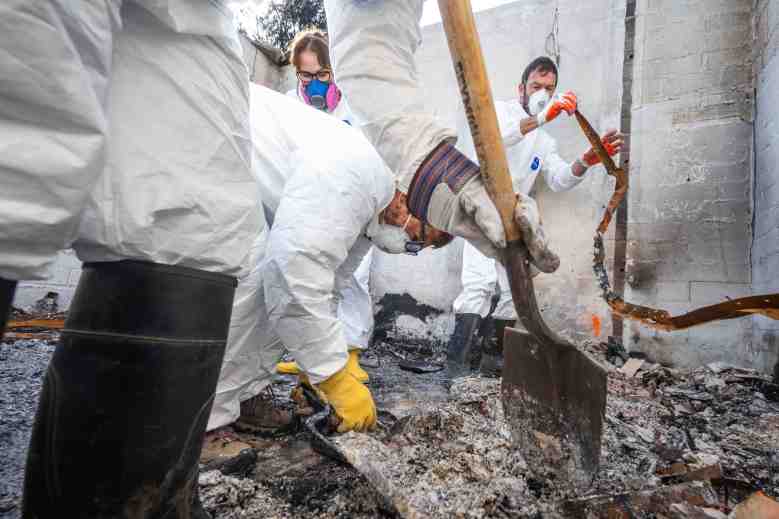In the wake of the devastating Eaton and Palisades fires, the Alta Heritage Foundation (AHF) has been leading an extraordinary effort to recover cremated remains lost in the destruction. A team of archaeologists, volunteers, and specially trained dogs have been working tirelessly to assist families in reclaiming the remains of their loved ones. Among those contributing to this critical mission are students and faculty from Cal State LA’s Department of Anthropology, who have joined AHF’s disaster archaeology teams on-site.
Founded by archaeologist Alex DeGeorgey following the 2017 Tubbs Fire, AHF has pioneered disaster archaeology, a field dedicated to the retrieval of human cremains from homes destroyed by wildfires. Since its inception, AHF has conducted over 340 site excavations, helping more than 350 families recover lost remains in California and Oregon. The recent wildfires in Altadena and Pacific Palisades have created an urgent need for additional support, with over 1,000 families potentially requiring assistance.
AHF teams work methodically, combining forensic archaeology and canine detection. After speaking with affected families, archaeologists examine fire-damaged sites before allowing trained dogs to detect cremains. Once identified, excavation teams carefully recover and return the remains to families.
Cal State LA’s Contribution
Among those assisting in the field are Dr. Amira Ainis and students from Cal State LA’s Anthropology Department. Their participation in the recovery process highlights the university’s commitment to public service and applied research in archaeology. Student Ilona Perry was recently recognized in media coverage for her involvement in working alongside experienced archaeologists to learn the delicate process of cremation recovery.
A Call for Volunteers and Support
As AHF prepares for its next recovery rotation from March 7-9, the organization seeks volunteers and financial support to continue its operations.
Volunteers can assist in various capacities, from field archaeology to logistical support. The foundation also accepts donations to help cover the costs of safety equipment, travel, and training.
For more information on how to volunteer or contribute, visit the Alta Heritage Foundation’s donation page.


